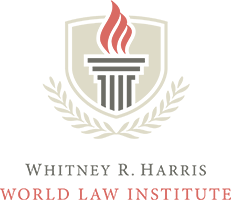[Originally published on Brandeis News.]
On Oct. 4, the International Center for Ethics, Justice and Public Life at Brandeis University hosted a film screening of Never Again: Forging a Convention for Crimes Against Humanity. The 45 minute documentary paints a stark picture of an international criminal legal system unable to fully deliver justice to war-torn areas around the world.
The film opens by providing context on those war-torn areas, including situations in Chad, Iraq, Colombia, Syria, the Democratic Republic of the Congo and North Korea, with particular emphasis on the latter four.
It proceeds to give background information on the history of international justice and its foundations in the post-World War II military tribunals, most notably the Nuremberg trials of Nazi officials and soldiers. For the first time, the charter that provided foundation for the Nuremberg tribunals defined crimes against humanity in its attempt to put a halt to horrendous atrocities and to end impunity for those who commit them.
The event ended with a discussion that explored initial reactions to the film. The conversation moved into viewers’ thoughts on the U.S.’s role in crimes against humanity, alternative means of achieving justice and possible early warning systems to further reinforce efforts to truly make “never again” a reality.
